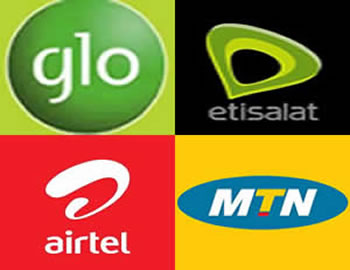
Virtually all days and nights, customers receive incalculable flash messages from the networks, introducing various services. Sometimes it comes as sports, games, songs, jokes, current affairs, religious related, etc. At the end of such flashes is the amount to be deducted if the subscriber clicks ‘Ok or Yes’ on the handset. It doesn’t matter if the customer doesn’t need the service: the moment any button on the handset is touched after the arrival of the message, deduction commences immediately and endlessly. It could be a child touching the handset or even any object or while in the pocket. It could also be when browsing, using short message service or taking a snapshot. The moment a flash message arrives, any touch of a button or on screen for screen-touch brands, perhaps to return to prior engagement—the rest is history. The instant result will be an alert; ‘You have subscribed’with instant deduction or it queues for deductions patiently waiting for next recharge except the customer cautiously pressed on ‘NO’ button.
For those not sensitive to the subscription notifications, the deductions run in perpetuity. Another bad side is that once deduction is made, it is non-refundable; at most, it will be deactivated at the point of complaint after several deductions. The question begging for answers is: how could ‘Ok’ imply acceptance of offer? Can customers decode what the “OK” implies , especially rural market women, aged persons and illiterate persons that are unable to read?Besides,the term ‘Ok’ craftily put at the end is relative. It could be perceived as ‘seen, read, noted’, etc, and above all,unlikely not be observed if not meticulously read down.
Imagine where such flash messages are strategically pushed to millions of subscribers and N20, N50 or N100 as usual, are deducted. I leave the calculations for the Nigerian Communication Commission (NCC).In a civilised society, to subscribe to value-added services, designated codes are sent to corresponding locations and not “OK,” so that whoever wishes to subscribe can willingly and calculatedly sign up. NCC must meet expectations and discharge its statutory duties proactively, efficiently and effectively.
It is trite law that there are requisite elements in any valid contract: offer, acceptance, consideration, mutuality of obligation (mutual interest) and capacity, and any ambiguity surrounding them can lead to voidance of the contract. Thus, anyoffer with ‘Ok’ or ‘Yes’ as a means of acceptance is ambiguous, erroneous and should be reviewed without any delay.
Again, the Do-Not-Disturb (DND) mechanism as a means of deactivating a particular subscribed service available on the networks is insufficient. The majority of customers do not have apt knowledge of them and therefore cannot activate them. How would the masses, especially uneducated subscribers, understand the flash messages or the DND system? The DND is smartly setup to cover up malicious deeds. My unwavering point is that mere ‘Ok or Yes’ in flash messages is inadequate for acceptance in a valid contract. Besides, flash messages cannot be a valid point for acceptance of offers but only suitable for the advertisement of goods and services. To subscribe to the advertised services, it is obligatory and indispensable that a code must be provided so that willing customers can activate or subscribe to the services with no form of coercion. The existing design is Machiavellian, exploitative and manipulative. It implies that all that is needed is to sponsor programmed flash messages with subscription rates and push them to a good number of customers, then watch for how many would fall to the tricks and then bank alerts will begin to swell, for sharing between the sponsors and service provider.
In conclusion, the NCC as the regulatory body should step into action and stop these aberrations by GSM operators without further delay. Corrective actions should be put in place as huge amounts running into millions of naira are realised continually through the schemes at the detriments of the masses. People must exercise their rightsto willingly choose value-added services rather than the duplicitous trends.On several occasions, customers’ hard-earned monies were deducted over unsolicited value added services to which they never subscribed. More worrisome is where airtimes are borrowed in critical situations but ended up being deducted as accrued subscriptions over these value-added services. All earnings from forced subscriptions by service providers, in conjunction with their third-party sponsors, are scams.The schemes are a grotesque, highly orchestrated fraud.







